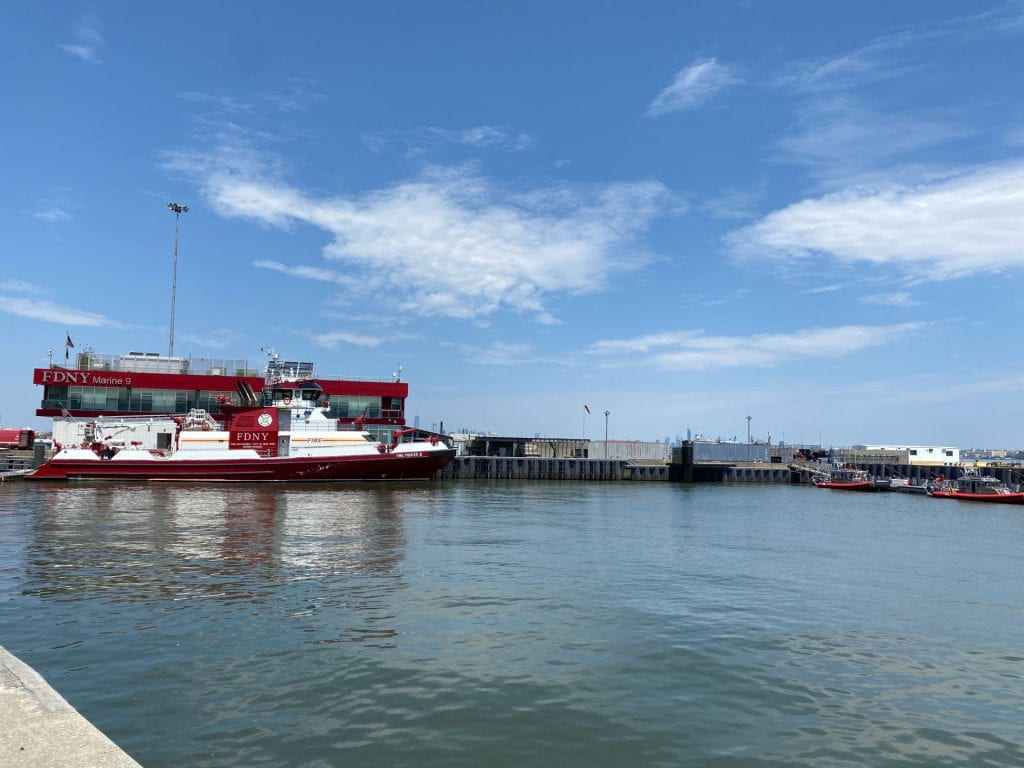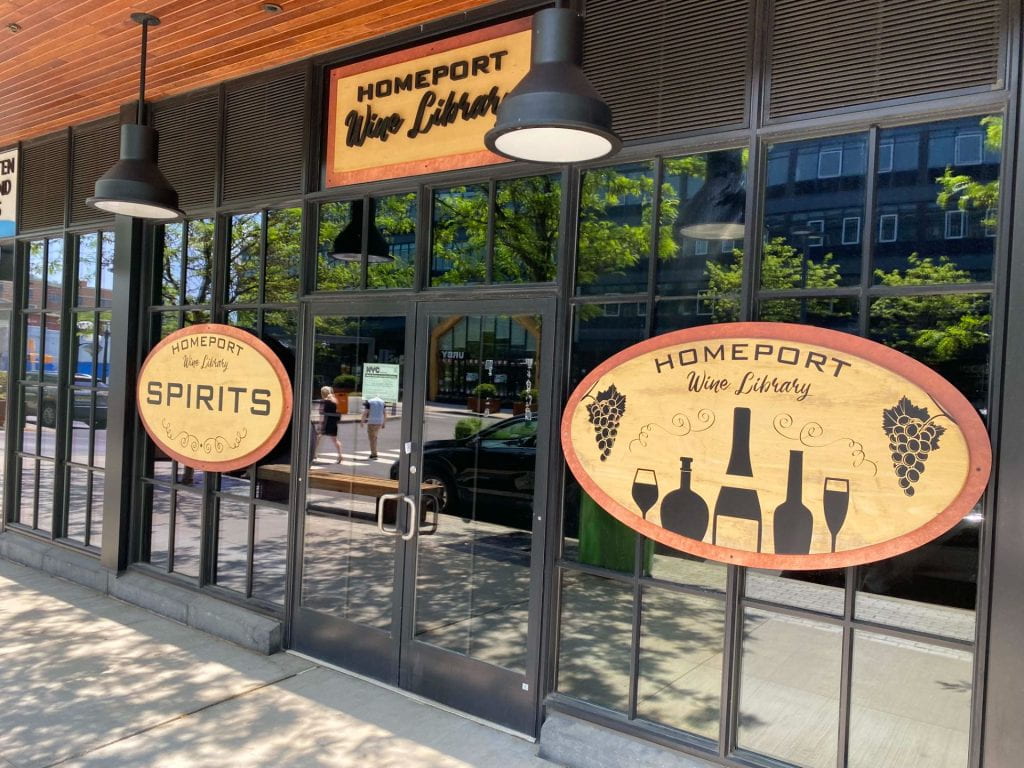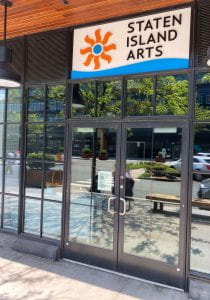The following reflection is from Madison Turunen ‘23 a Pace University undergraduate who participated in the POL297L Global Politics of Disarmament and Arms Control class in Fall 2022. Students were given service learning assignments with local disarmament advocacy organizations working in New York City. Madison’s assignment was with the New York Campaign to Abolish Nuclear Weapons (NYCAN), local affiliate of the International Campaign to Abolish Nuclear Weapons (ICAN), 2017 Nobel Peace Prize Laureate.

FDNY Marine Company 9 is located on a portion of the former nuclear-capable Navy Homeport in Staten Island. Photo: Matthew Bolton, 2022.
For the civic engagement project, I worked with a group of students verifying whether the US and other governments were complying the New York City’s nuclear weapons free zone declaration in 1983, reaffirmed in 2021. We examined the history of this legislation, looked at examples of naval ships coming into the harbor, and examined the current state of former nuclear weapons development sites. In this process I had the opportunity to use my background as a Political Science and Peace and Justice Studies double major to engage with New York City’s nuclear history. In other courses I have had limited engagement with local history. With this project I was able to deeply examine the implications of the Manhattan Project and how New York City Council legislation aims to address harms in our community.
From this experience I learned that disarmament advocacy and education are essential for maintaining active accountability and encouraging action. For example, thanks to activism in the 1980s, the former nuclear-capable Navy homeport in Staten Island is no longer a military base and is now largely occupied by the Fire Department of NYC, as well as commercial and community organizations (see photos).

Part of the formerly nuclear-capable Navy homeport in Staten Island is now commercial space. Photo: Matthew Bolton, 2022.
I also learned how international norms and treaties translate to the state and local level. As someone who has worked in international advocacy spaces, it can often be difficult to see an immediate translation between global actions and localized implementation. However, I was able to see how the 2017 Treaty on the Prohibition of Nuclear Weapons and the International Campaign to Abolish Nuclear Weapons (ICAN) was having an effect on local politics. NYCAN drew on these emerging global norms to successfully advocated for the passage of 2021 nuclear disarmament legislation in the City Council.

Part of the formerly nuclear-capable Navy homeport in Staten Island is now space for community organizations. Photo: Matthew Bolton, 2022.
Nevertheless, many of the commitments have not yet been followed through. Specific information is also often difficult to access. Through our research we developed policy and activist recommendations to encourage following through with NYC’s commitments and overall compliance with the nuclear weapons free zone.
As someone who hopes to build a career in higher education and international advocacy, this experience was truly reaffirming of the power I yield and the potential capacities of my future career path. I also learned of the possibilities of bridging my background in international gender equality and youth development with disarmament, as well as localizing the issues. By centralizing disarmament education and opportunities to inspire younger generations, the overall advocacy and policy space become intergeneration, and in turn intersectional.
